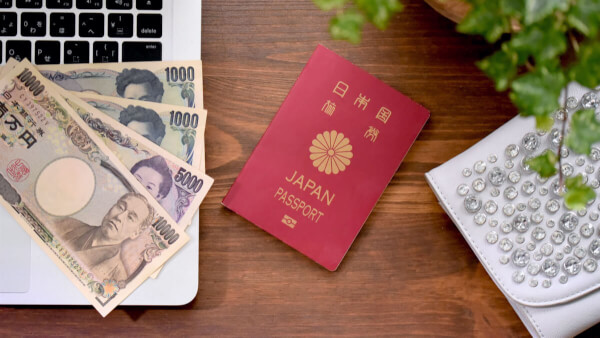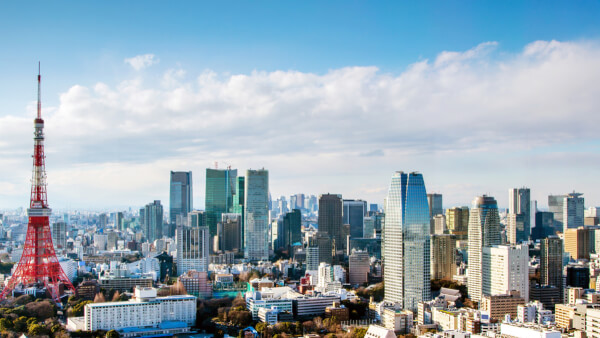How to move to Japan: step by step guide
Moving? Explore our blog for key insights on managing expenses, currency, and more adjustments for a successful move.

Living in Tokyo offers a lot of excitement for expats. Between super convenient transportation and stores, tons to things to do and see, great food, vibrant nightlife and easy access to the rest of Japan’s beautiful landscape, it’s a hot choice for many people seeking a change of pace.
That being said, renting an apartment in Tokyo can be daunting thanks to the massive selection and not-so-affordable rent prices. In fact, a one bedroom apartment in the city center averages a whopping 130,428.57¥.
If you’re willing to shell out the cash for an exciting lifestyle and an endless supply of sushi, the first step is figuring out where and what to rent. This guide will walk you through everything you need to know about renting in Tokyo.
Unlike many western cities, Tokyo offers its residents a wide range of housing types. From detached houses to “mansions” (big multi-story buildings arranged in a complex), most people can find exactly what they’re looking for right in the center of the city.
Renting an apartment long-term often means bringing your own furniture, though some select apartments and luxury rentals may come with the furniture intact. Short term rentals almost always come furnished, but are mostly used as vacation homes or places to stay while you find something more permanent.
It’s also possible to rent a room within an apartment, and many Tokyo residents do live with roommates. As such, if you’re looking to save some cash an apartment share might be right for you.
Where you should live in Tokyo is largely dependent on what kind of lifestyle you’re looking for. Some popular neighborhoods include:
To get a better idea of the various neighborhoods, what you can expect in an apartment and how much rent you might be charged, it’s a good idea to start your hunt by browsing apartments online. It’s also worth remembering to look for apartments that advertise being gaijin (foreigner) friendly, as landlords are known to either highly prefer or, conversely, flat out refuse to rent to non-Japanese people. Some of the best sites include:
Alternatively, if you’re looking to live with a roommate you can start looking for one on any of these sites:
As you begin your search, it’s a good idea to learn some basic real estate terms in the local language. Some important ones include:
Once you’ve found an apartment you like, you’ll need to sign a rental agreement. These types of contracts can vary quite a bit, but should include:
Most landlords will require you to put down a deposit as well. Make sure to walk through the apartment and take lots of pictures, so you can document exactly what condition each room was in when you got there. It’s not uncommon for this deposit to amount to one to three months rent.
Japanese landlords may also require you to pay “key money,” or reikin. Reikin is a non-refundable “gift,” typically of one to two months rent, that you pay to your landlord. Roughly 50% of Japanese landlords still charge a reikin, though they’re most common in desirable neighborhoods. These fees can be pretty hefty, so if you can find an apartment you like with a landlord who isn’t charging key money your wallet is going to be much better off.
Remember, it’s smart to follow Japanese customs in general when dealing with your landlord - don’t forget to offer them tea when they come over, even if it’s to yell at you or raise your rent.
Most landlords in Tokyo will allow you to pay rent online or via a direct bank transfer. If the latter is the case, it’s a good idea to use Wise to ensure you’re getting the real exchange rate and to cut down on international transfer fees. You’ll also want to transfer some funds into your local bank account to cover utilities and day to day expenses, as you may need to use cash for smaller purchases or to try the local street food.
Thanks to the plethora of options and most foreigners’ inability to speak Japanese, working with a real estate agent is pretty commonplace. Some reputable agencies include:
Renting in Japan can be a confusing process, but the payoff living in the exciting and beautiful country is worth the reward. As you look for your apartment, it’s a good idea to be shrewd about protecting yourself from potential scammers. Always visit a place before you rent it, avoid paying your rent in cash and make sure you have working keys in hand before you pay your landlord.
Otherwise, you’re ready to start your search. Good luck!
*Please see terms of use and product availability for your region or visit Wise fees and pricing for the most up to date pricing and fee information.
This publication is provided for general information purposes and does not constitute legal, tax or other professional advice from Wise Payments Limited or its subsidiaries and its affiliates, and it is not intended as a substitute for obtaining advice from a financial advisor or any other professional.
We make no representations, warranties or guarantees, whether expressed or implied, that the content in the publication is accurate, complete or up to date.

Moving? Explore our blog for key insights on managing expenses, currency, and more adjustments for a successful move.

Wondering if you're eligible for Japanese citizenship? Find everything you need to know in this handy guide.

Whether you’re an expat already, looking for a second home for family vacations, or want a smart investment, buying real estate in Japan can be a good move....

Americans love Japan. They love the unique culture, cherry blossoms, the never ending nightlife of Tokyo and of course, sushi. Japanese culture fascinates...

Japan is a country with a rich history and growing economy. In certain industries, like the tech sector, booms are starting to happen. Japan is quickly...

Whether you’re bridging family traditions or a simply looking for a unique destination, a Japanese wedding experience is like no other in the world. Japanese...